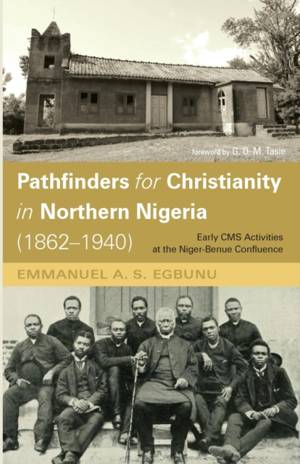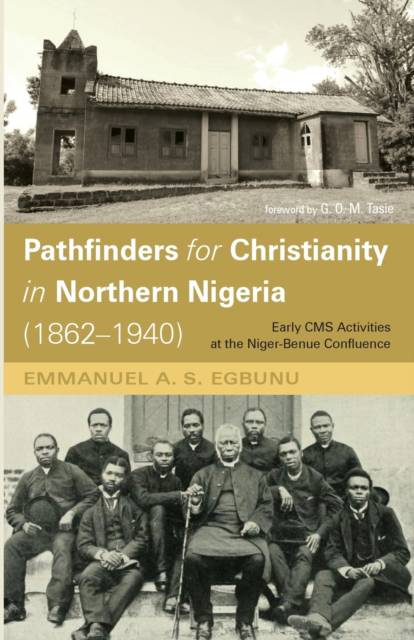
- Afhalen na 1 uur in een winkel met voorraad
- Gratis thuislevering in België vanaf € 30
- Ruim aanbod met 7 miljoen producten
- Afhalen na 1 uur in een winkel met voorraad
- Gratis thuislevering in België vanaf € 30
- Ruim aanbod met 7 miljoen producten
Zoeken
Pathfinders for Christianity in Northern Nigeria (1862-1940)
Early CMS Activities at the Niger-Benue Confluence
Emmanuel A S Egbunu
Paperback | Engels
€ 29,45
+ 58 punten
Uitvoering
Omschrijving
The rivers Niger and Benue come together at the heart of Nigeria on a map. Besides being a confluence of two great rivers, it also became the location of landmarks in Nigeria's history, notably the amalgamation of the northern and southern protectorates. As it was also a confluence of various cultural clusters, the Niger-Benue confluence communities went through three phases of Western encounters: commercial, missionary, and colonial. These have combined to shape the sociopolitical profile of northern Nigeria in various ways. In particular, it is the cradle of Christianity in northern Nigeria. Yet social historians have often assessed all three foreign influences indiscriminately and overlooked the unique and fundamental impact of the missionary encounter in providing the treasured values that midwifed social stability in such a pluralistic and sometimes volatile environment. This study undertakes a separation of the strands and sheds light on the laudable initiatives and legacies of the missionaries to ensure more clear-minded interpretations.
Specificaties
Betrokkenen
- Auteur(s):
- Uitgeverij:
Inhoud
- Aantal bladzijden:
- 160
- Taal:
- Engels
Eigenschappen
- Productcode (EAN):
- 9781666706376
- Verschijningsdatum:
- 14/01/2022
- Uitvoering:
- Paperback
- Formaat:
- Trade paperback (VS)
- Afmetingen:
- 140 mm x 216 mm
- Gewicht:
- 195 g

Alleen bij Standaard Boekhandel
+ 58 punten op je klantenkaart van Standaard Boekhandel
Beoordelingen
We publiceren alleen reviews die voldoen aan de voorwaarden voor reviews. Bekijk onze voorwaarden voor reviews.








